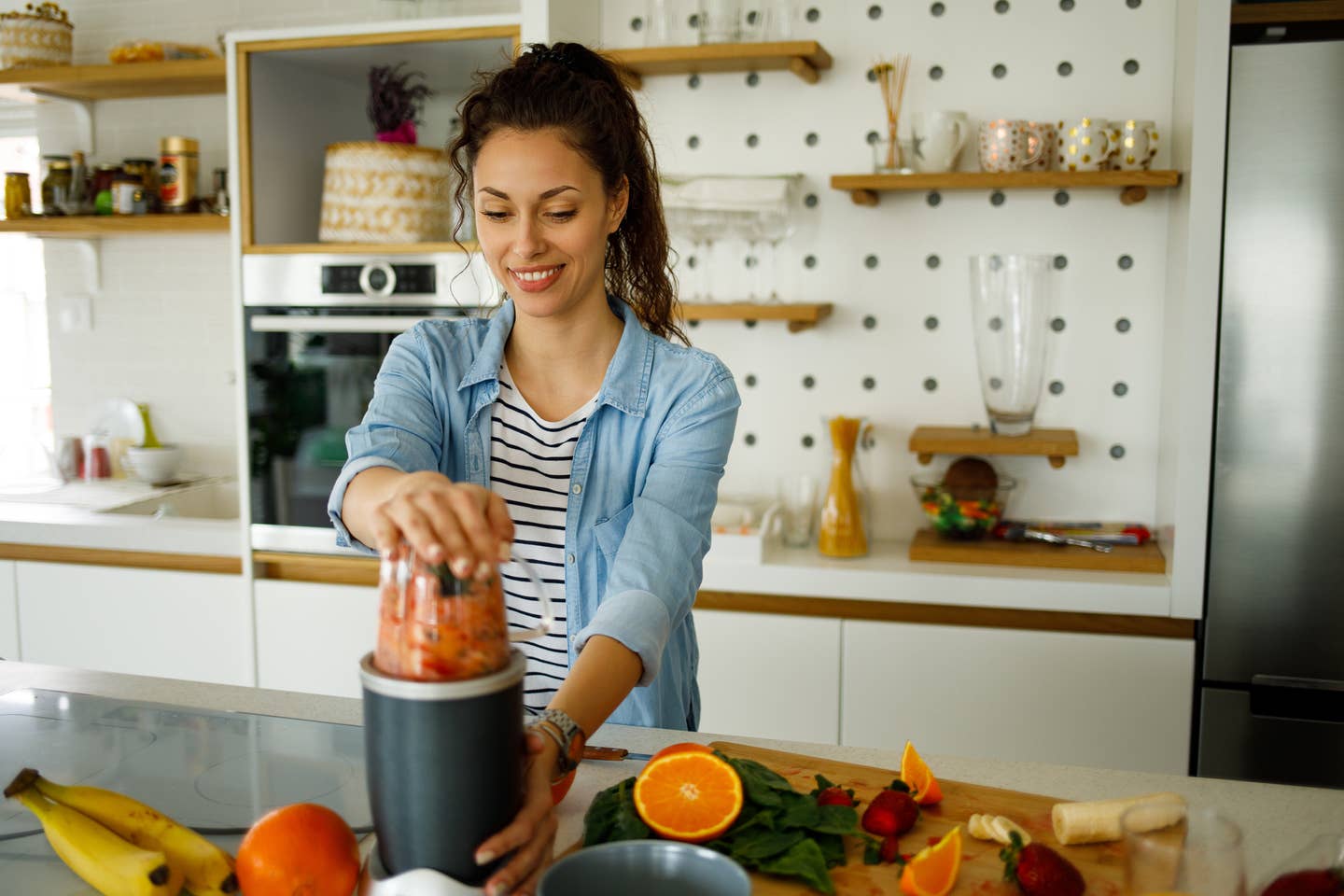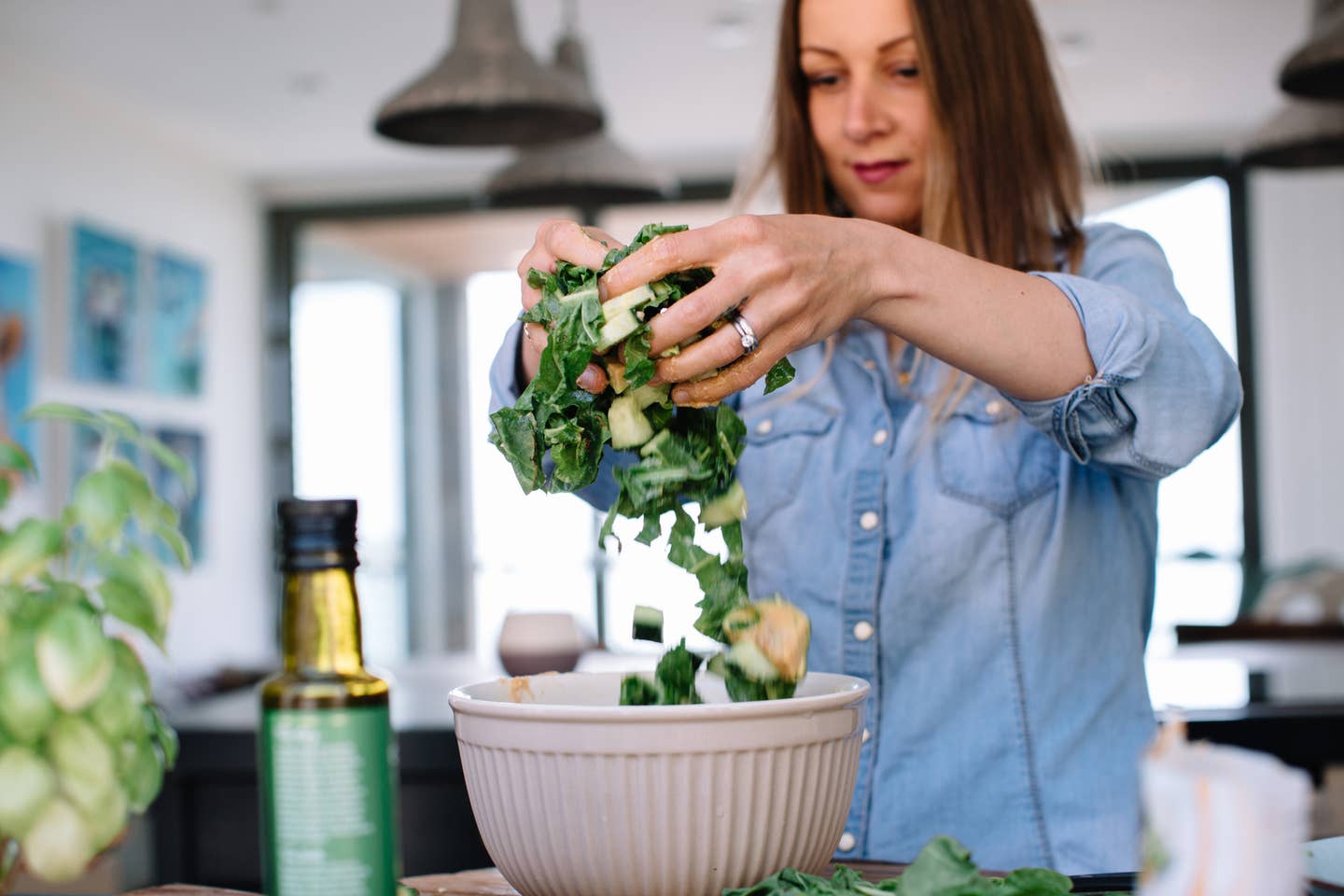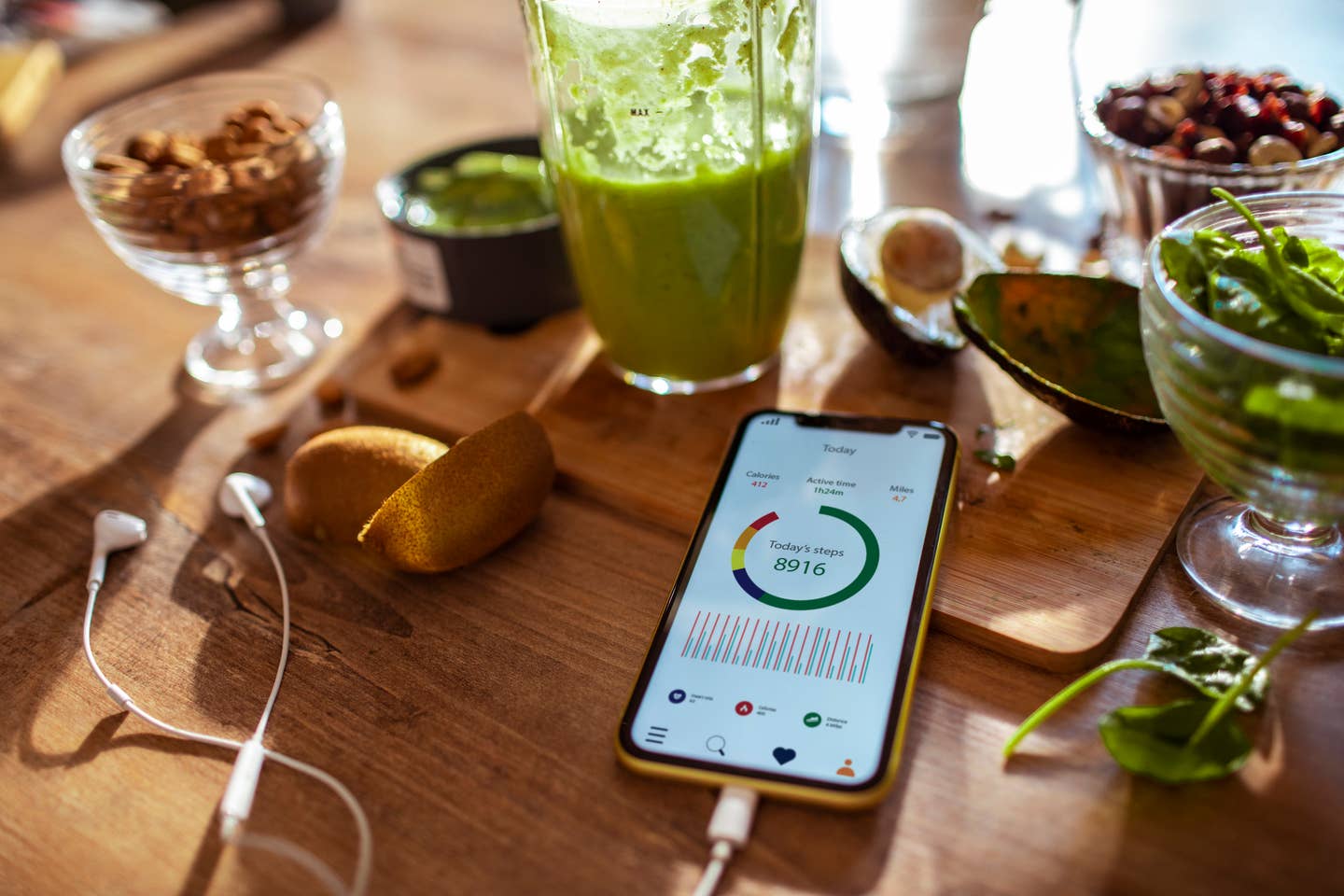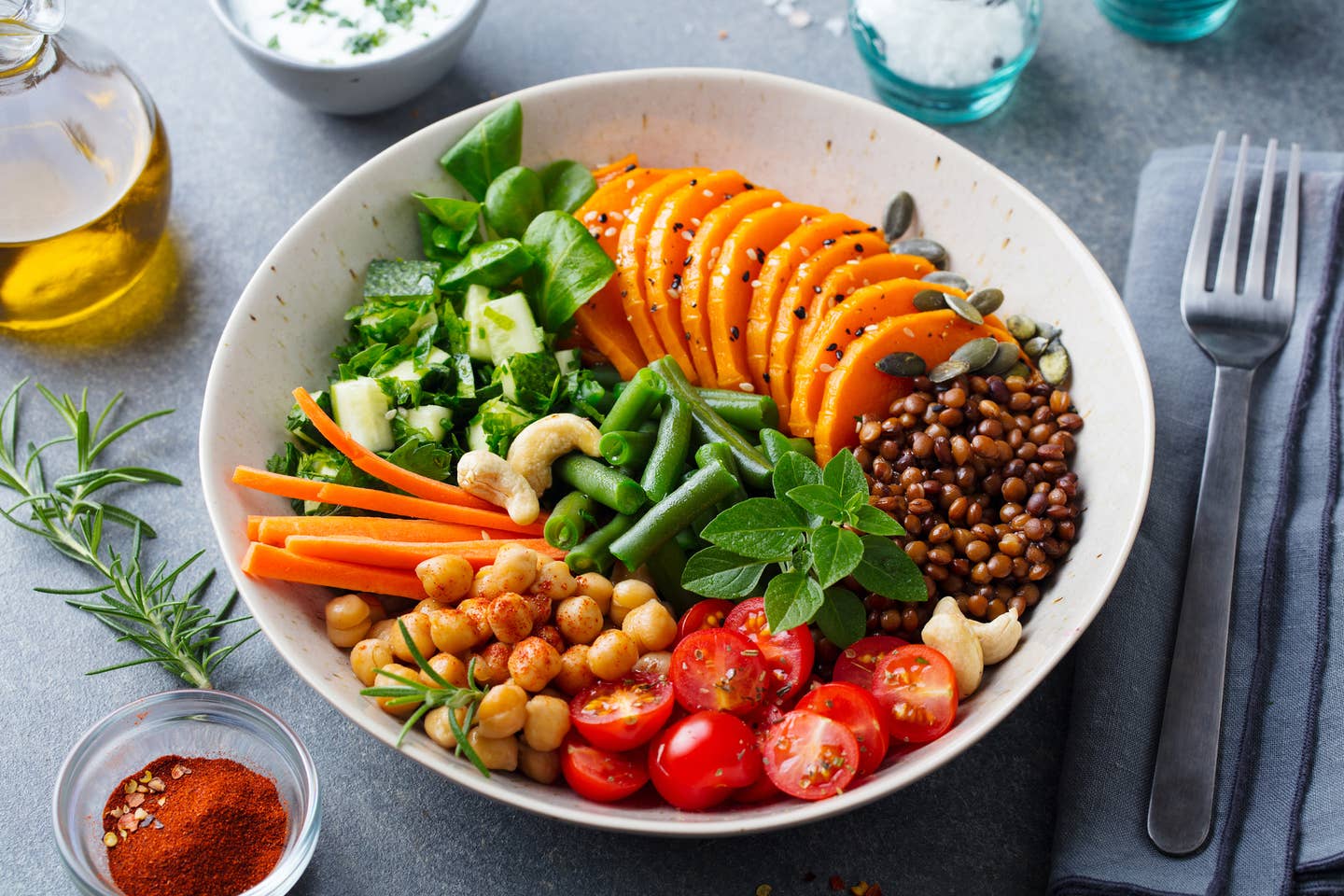
7 Reasons You’re Not Losing Weight on a Vegan Diet, From Chef AJ
Switching to a plant-based diet comes with numerous health benefits, chief among them weight loss. In fact, the link between a plant-based diet and weight loss is so strong that if you do nothing else but change the way you eat, you’ll most likely lose weight. And the results are even better yet if your diet is "plant-only."
What’s the magic? It comes down to calories. “What people don’t understand is that they’re not overweight because they eat too much food, but because they eat too many calories,” says Chef AJ, the Los Angeles-based vegan chef, and best-selling author of The Secrets to Ultimate Weight Loss, and the host of Healthy Living with Chef AJ on Foody TV and host and creator of The Real Truth About Weight Loss Summit. (This free event usually happens in February so look for it then.) AJ knows first-hand how to lose weight on a plant-based diet. She battled a severe junk food addiction that made her morbidly obese by 11 years old, with her weight continuing to climb through her 20s. Yet by switching to a whole-food, plant-only diet (which excludes salt, oil, and added sugar), she dropped 100 pounds and has managed to maintain that loss for years.
Choose Lower-Calorie Density Foods to lose weight on a plant-based diet
When you switch to a plant-only diet, you’re noshing fiber-rich foods, which fill you up and allow you to feel fuller while eating less, says Chef AJ, especially if you’re veering toward plant foods that are "lower-calorie density," meaning they contain fewer calories per ounce. By choosing foods that are low in calories, like non-starchy vegetables, fruits, whole grains, and legumes you can fill up on fewer calories and lose weight. Some plant foods like avocados, nuts, seeds, and oils are higher in calories while still being healthy.
By getting rid of animal foods in your diet, you’re avoiding foods that are highest in calories and fat per ounce and as a result, you’ll typically lose weight, says Pamela Bonney, M.S., R.D.N., C.D.N., integrative dietitian nutritionist and co-founder of Tried and True Nutrition in Long Island, NY.
Of course, that’s not to say that everybody who switches to a plant-based diet is successful at losing weight, and some people still struggle. Sound familiar? Here are seven mistakes you could be making:
Here are 7 Mistakes You Could Be Making on a Plant-Based Diet
Mistake #1: Your diet is loaded with vegan junk food.
Even if it’s vegan, junk food is junk food, and a vegan cheeseburger and fries is still a cheeseburger and fries, high in calories and fat. “Just because it’s labeled vegan or even plant-based doesn’t mean it’s a good choice for someone who wants to lose weight,” Bonney says. A better option? Shoot for a diet that’s at least 80 to 90 percent whole plant foods like vegetables, fruits, whole grains, beans, legumes, nuts and seeds. You can then use the remaining 10 to 20 percent for small indulgences, which may help you avoid feeling like you’re on a restrictive diet.
Mistake #2: Your food is doused in oil.
It doesn’t matter what type of oil you’re eating, olive included, you’re consuming a load of calories with no nutritional gains. “Oil is 40 times more calorie-dense than vegetables,” Chef AJ says, adding that this is one of the first things she recommends cutting from the diet when trying to lose weight. And even though you might consider olive oil healthy because it comes from a plant, the olives have been stripped of their fiber, which is problematic. “Without the fiber, your stretch receptors won’t register that you’re full, and those 500 calories from two to three tablespoons of oil will slip under the radar of your mechanisms of satiety,” she says. As a result, you’ll most likely wind up overeating, and most people don’t make up for that transgression the next day.
Mistake #3: You’re going out to eat, even if it’s a vegan restaurant.
“If you want to get fat and sick, you go to restaurants,” Chef AJ says. Restaurants use more sugar, salt and fat in their meals than you do when you cook at home, one reason studies have found that restaurant meals are always higher in calories than they say they are, sometimes by as much as 1,000 calories higher. And don’t think you’re off the hook if you go to a so-called healthy restaurant, even a vegan eatery. They still have the same issues.
Mistake #4: You’re indulging a little too frequently in high-calorie vegan sips.
From vegan lattes to vegan beer and wine, vegan beverages have never been more plentiful. And while they may be better than beverages that contain animal products like milk and other dairy, that doesn’t mean they’re healthy. “They still contain too many calories and are often too sweet,” Bonney says. As a result, the more sugar you feed your taste buds, the more sugar they want. While some people might be able to have the occasional sweet beverage and still have success with weight loss, you may need to eliminate them altogether. Instead, choose water, unsweetened teas and coffee, seltzer and/or kombucha. And when choosing plant milk, aim for the unsweetened varieties, Bonney says.
Mistake #5: You’re not eating enough whole fruits and veggies.
Crazy as it sounds, one of the most common mistakes Bonney sees in clients who attempt to follow a whole-food, plant-based diet for weight loss is lack of fruits and veggies in their diet. “Most people are so concerned with protein food sources, fats or carbohydrates that they forget to eat enough fruits and/or veggies,” she says. By not eating enough of the good stuff, you may get too hungry and then binge or overeat at the next meal or snack. Shoot for at least eight to 10 servings a day.
Mistake #6: You’re eating too many foods that are high in calorie density.
“While foods like avocados, nuts and seeds are healthy, they’re also calorically dense,” Chef AJ says. That’s why recommended portions sizes are small – one serving of avocado is one-third of a medium avocado, for instance, for instance – but nobody eats just a small amount. To help people understand this, Chef AJ has created her own calorie density chart and recommends eating foods to the left of the red line, namely all of the above-mentioned foods that are low in calorie density. (For a copy, check out National Health Association’s interview with Chef AJ here.)
Mistake #7: You view this as a diet. Think of it as a healthy lifestyle change.
Chew on this whopper of a stat: Over the course of a lifetime, the average adult will try 126 fad diets to lose weight quickly, which breaks down to about two failed diets every year, according to a UK survey. The catch? On average, dieters abandon those efforts six days later. “Going on a diet is the biggest weight-loss mistake people make because they always go off the diet,” Chef AJ says.
Instead, if you view plant-based eating as a permanent healthy lifestyle change with each day inching closer to the goal of eating a 100 percent whole-food, plant-based approach, you’ll have long-lasting success and can kiss all those fad diets goodbye for good.
More From The Beet






